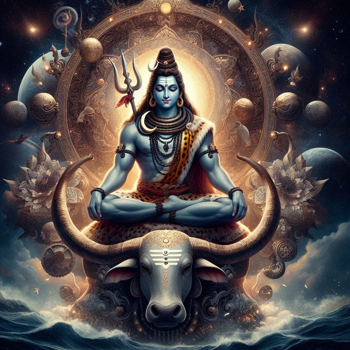



Shivaratri Vratam, also known as Maha Shivaratri, is one of the most significant Hindu festivals dedicated to Lord Shiva, the deity symbolizing destruction and transformation. Celebrated annually, this sacred observance falls on the 14th night of the new moon in the Hindu month of Phalguna (February/March). Devotees across India and various parts of the world undertake a day-long fast (vrat), engage in night-long vigils, and perform special pujas (worship rituals) to honor and seek blessings from Lord Shiva. The festival is deeply spiritual, emphasizing self-discipline, devotion, and the overcoming of darkness and ignorance.

Spiritual Awakening: The night of Shivaratri symbolizes the convergence of Shiva and Shakti, representing the union of consciousness and energy. Performing the puja with devotion is believed to awaken the spiritual self and foster inner peace.
Divine Blessings: Offering prayers and observing fast during Shivaratri is thought to invoke Lord Shiva's blessings, bringing prosperity, health, and happiness to the devotee's life.
Cleansing of Sins: It is believed that the Shivaratri puja has the power to absolve sins and purify the soul, leading to liberation (moksha) from the cycle of birth and rebirth.
Balancing the Energies: The rituals performed during Shivaratri help balance the male and female energies within us, symbolizing harmony and balance in life.
Enhanced Concentration and Focus: Fasting and night-long vigils help increase mental clarity, concentration, and focus, promoting mindfulness.
Spiritual Growth: The disciplined observance of the vrat fosters spiritual growth and deeper connection with the divine.
Improved Physical Health: Fasting is known to detoxify the body, improving digestion and promoting overall health.
Mental Peace and Stability: Engaging in prayer and meditation during Shivaratri reduces stress, anxiety, and negative emotions, leading to mental peace and stability.
Positive Energy and Aura: Devotees believe that participating in the Shivaratri puja fills one's life with positive energy, enhancing personal aura and well-being.
Strengthening of Willpower: The austerity practiced during the vrat strengthens willpower and determination, helping one overcome obstacles in life.
Shivaratri Vratam is not just a religious ritual but a journey towards self-realization and divine consciousness, offering numerous spiritual and worldly benefits to those who observe it with sincerity and devotion.
Observing Shivaratri Vratam involves a day of fasting, prayer, and worship dedicated to Lord Shiva. Here’s a step-by-step guide to performing the vratam:
By following these steps with dedication and sincerity, devotees can successfully observe the Shivaratri Vratam, seeking the blessings of Lord Shiva for peace, prosperity, and spiritual growth.